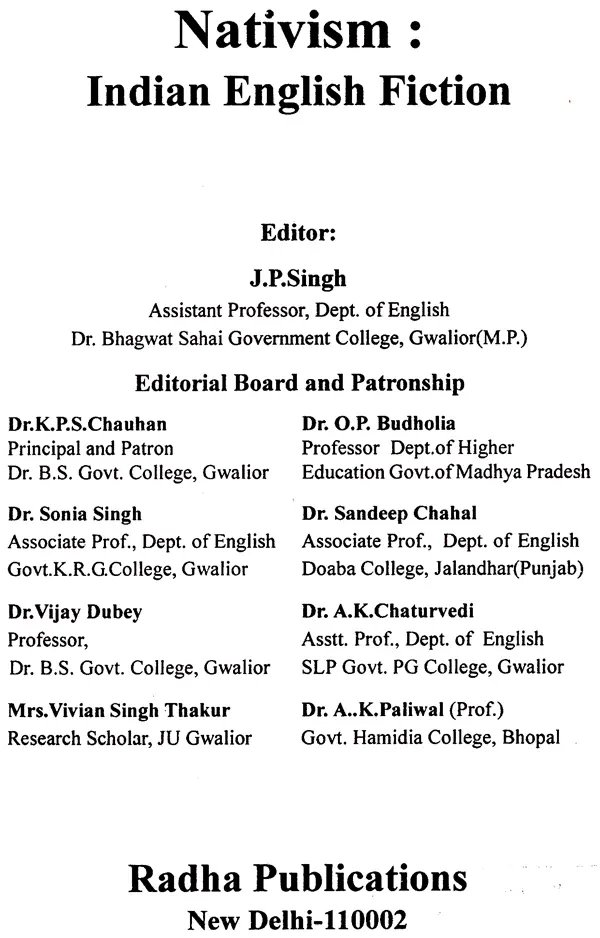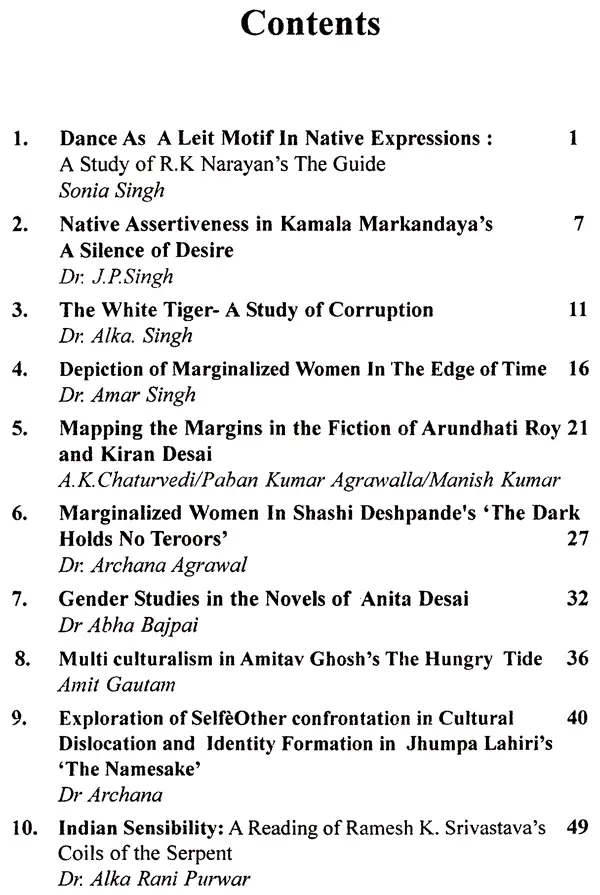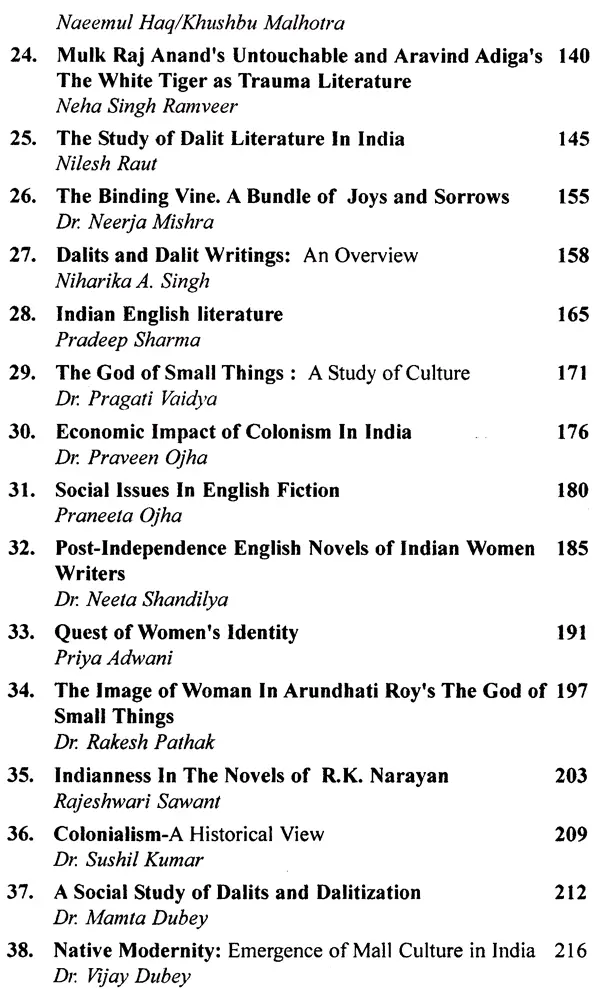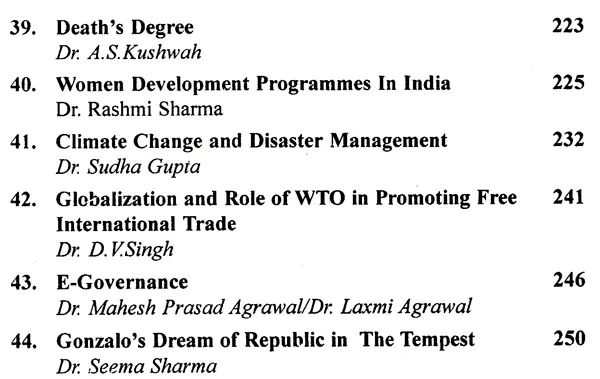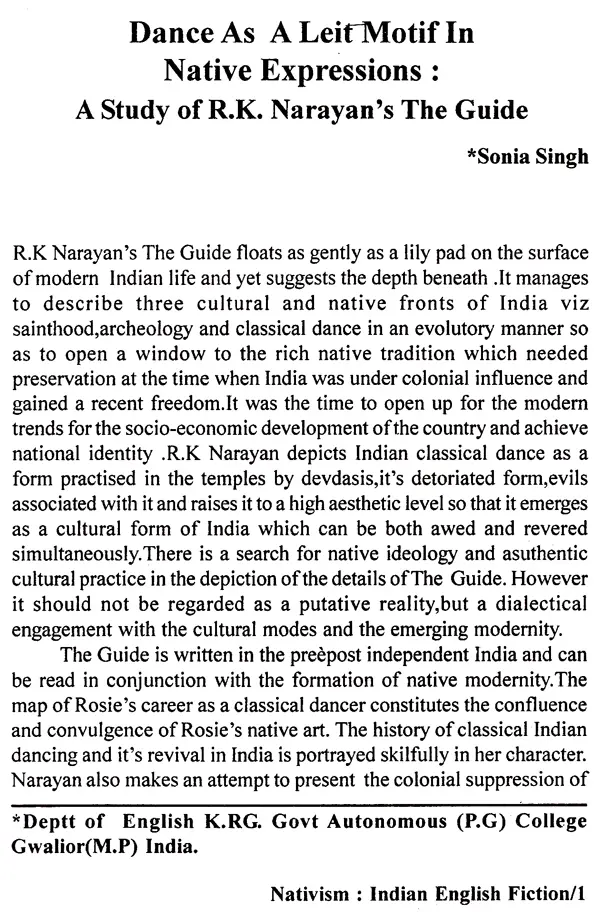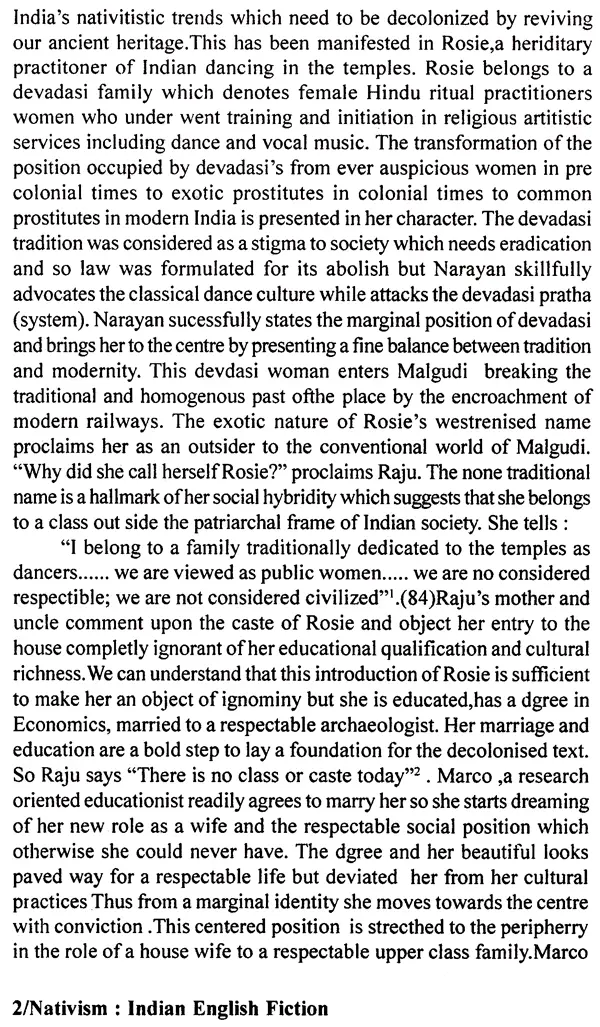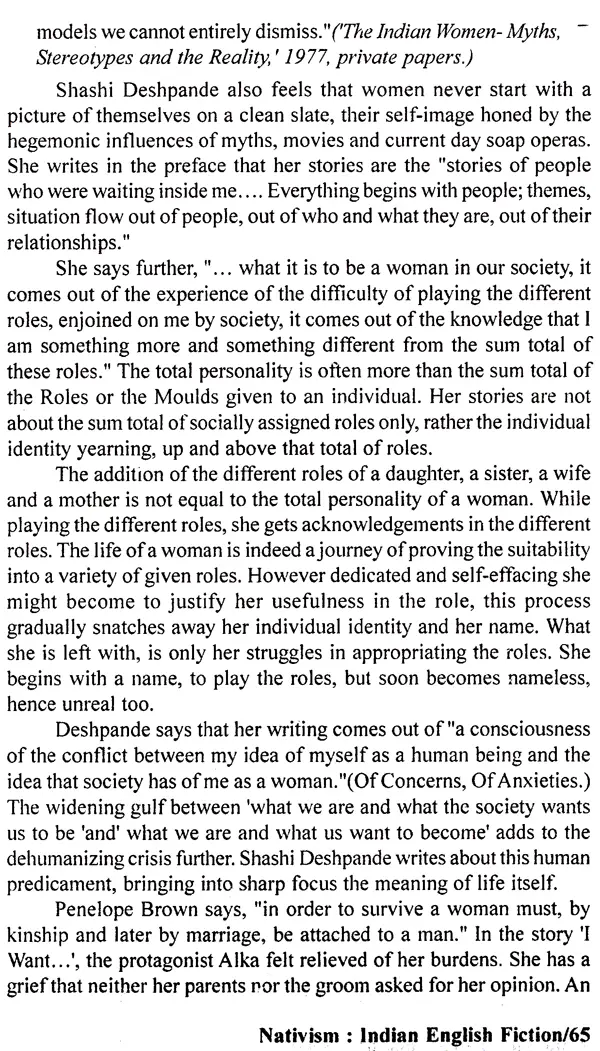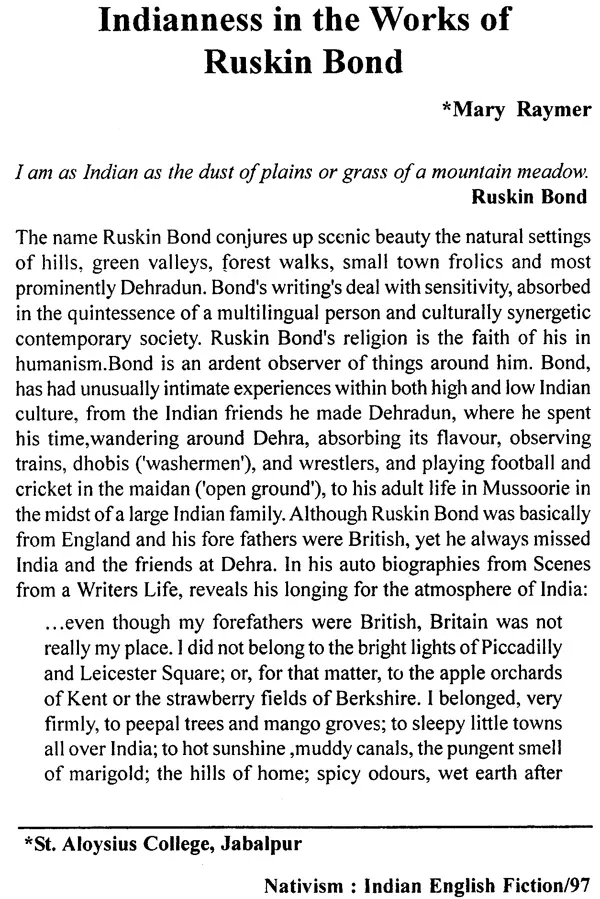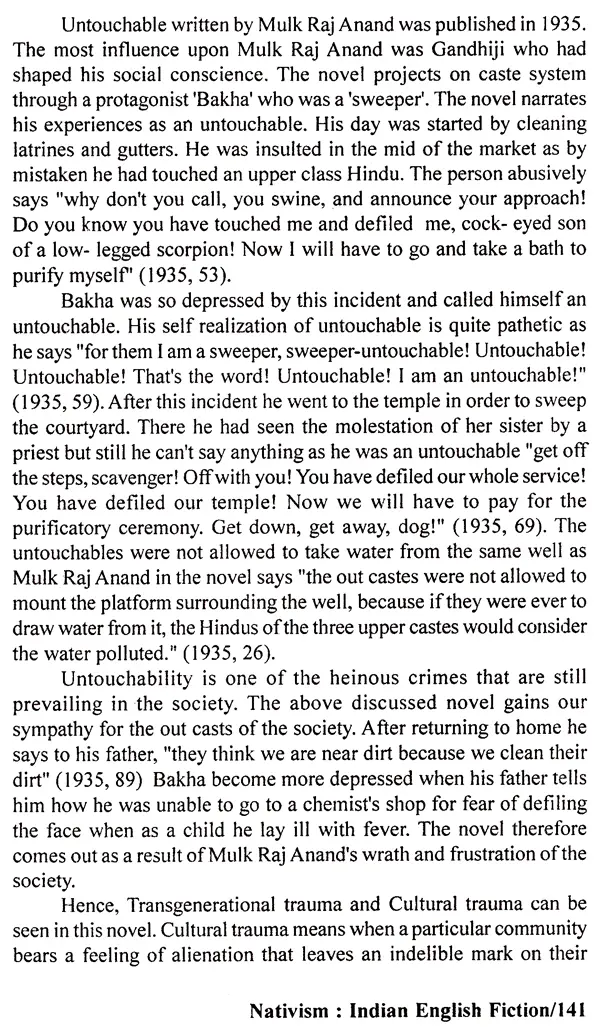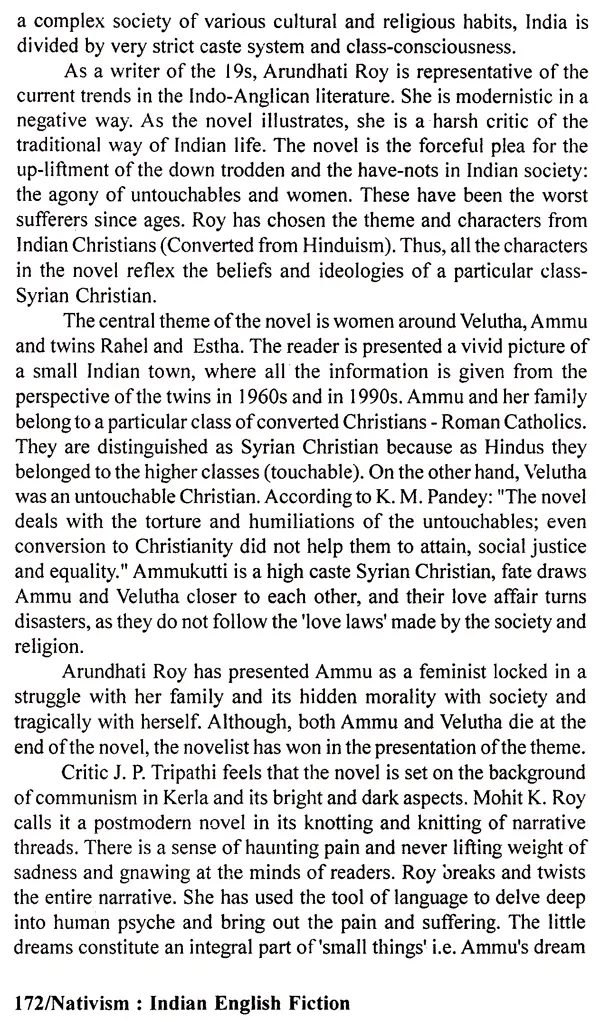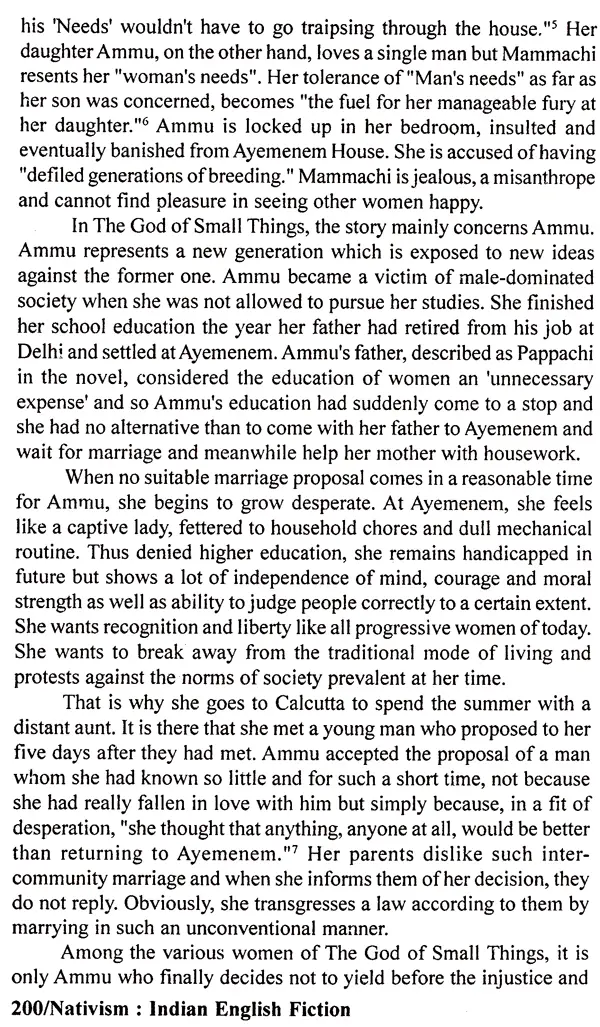
Nativism: Indian English Fiction
Book Specification
| Item Code: | UAR417 |
| Author: | J.P Singh |
| Publisher: | Radha Publications, Delhi |
| Language: | English |
| Edition: | 2014 |
| ISBN: | 9788174878823 |
| Pages: | 258 |
| Cover: | HARDCOVER |
| Other Details | 9.00 X 6.00 inch |
| Weight | 430 gm |
Book Description
The present book consists of papers which deal with multifarious issues related to Nativism, Nativity and Nativistic ideologies. The term native indicates all that is the part of India as a nation. Along with it, the term native shows the birth and inhabitance in a specified place. It also shows an association with the country, region or a particular area. In fact, nativity brings into being the various aspects such as language, culture, and new innovations. The term modernity came into being in the literary texts after 1950, specially refers to post-transitional, post medieval historical period marked by the move from feudalism towards capitalism, industrialization nationalization, secularization etc. An effort has been made by the editor to collect the papers from all over the country because the thought process of Nativity and Nativism decolonizes the literary essence. The chief purpose of this book is to enlarge the concept of Nativism as theory and practice either through the theoretical discourse or through the analysis of text and their context. I am sure the book, in the present format will be useful to students and scholars alike.
Dr. J.P.Singh, Assistant Prof. in the Department of English, Dr. Bhagwat Sahai Govt. College Gwalior, has been teaching undergraduate and postgraduate classes for the last 26 years. He holds his Ph. D. degree from Jiwaji University, Gwalior and is supervising Ph. D. Students in the same University. He has participated and presented papers in many national and international seminars. He has also published many papers on Indian English Literature and English Literature in various reputed journals and anthologies. He has organized National Seminar on Native Modernity in Indian English Fiction. He has also edited a book entitled Nativism: Indian English Fiction. His specialized area is Indian Writing in English.
The present anthology is a collection of articles which were presented in a UGC sponsored National Research Seminar organized by the Department of English, Dr. Bhagwat Sahai Govt. College, Gwalior(M.P.).The thrust area of the seminar was: Native Modernity in Indian English Fiction. The connotative meanings of the adjective-noun phrase-Native Modernity - brings into being the morphologic ideologies of contemporary Indian English Fiction. The connotative suggestiveness of the term native expresses the way, the cognitive behavior and the thought process of local inhabitants . Now, the question arises, with whom the local sensibility of way and behavior be linked? And the answer of the question leads on to think of a non-white(colonized subject) original inhabitants of a country as regarded by European colonists or travelers .
Again, the term 'native' becomes adjective when it is being linked with the noun, modernity. The concept of modernity becomes specific because it generates the multiplicity of meanings in relation with the existing structure of our society. Thus the term 'native' becomes symbolic of all that the part of India. The phrase 'nativity' includes in its peripheral circle many indigeneous referents such as the question of language, cultural configurations, ethnic ideologies and the association of a group of people living together and sharing the sense of being plural in a society. Moreover, the terms such as nativism, nativistic,nativity and nativists lead one to think the deep rooted intellectual background of the term and its psychological reflections and an impact on the fictional writings. The term nativism as the principle of literary theory can be equated with the native theory of Desivad. The major properties 'self and other' can be analyzed in relation to the theory of nativism. The concept of 'self' denotes an interiority or a collective consciousness which shows an idea or a mental picture of a group or class of objects formed by combining of all their view points and values. Thus the idea of self represents the wholeness of geographical boundaries, cultural propensities and the collective image of being in order to become. With this ideological framework there emerge some referral signs for India as a nation and the fictional narrativisation The historical and cultural narratives that figure in the texts of contemporary fictional writings and show the binaural motifs : the identity of self as a nation and the global interconnectedness for the broader principles of life. The core question that remains to be analysed under the head of native modernity is to explore the structural possibilities for narrating India as a nation. And this then remains the motif behind the intentionality in search of the narrative of a genre of fiction in India. The emergence of the genre fiction in India vouchsafed the falsity of historical canons .After the physical and psychological liberation, Indian people looked for the total freedom from the British regime and so did Indian writers. And this was possible for the writers after the freedom of the country to search a mode,a photograph and a pattern for the inclusion of solipsistic ideologies of a nation in their creative work. This then becomes the centre point to decolonize the effects of colonies and to suggest a pattern for working out the indigenous approach to the creative process. This pattern or narrative will be fructiferous to share the concepts of multi culturalism, multi religious sensibilities and multi ethnic segments .When 'self' is enriched, the other parts nearing to it will also be strong. This then becomes a subtle message that one derives from the theoretical principles of native modernity. This book includes in its contents the following novelists: Mulk Raj Anand, Ruskin Bond, Kamala Markandaya, Anita Desai, Jhumpa Lahiri, Shashideshpande, Arundhati Roy, Arvind Adiga, Kiran Desai, and others. Therefore, some senior scholars have contributed their articles to this book. However, the editor has also included the articles of new scholars for encouraging them to follow the line in times to come .Some concept based articles make this book valuable as they analyse in detail the theories of Colonialism, Marxism, and New- Historicism. The hard work of the editor has made it possible to compile the galaxy of various articles and papers. I am sure that this book in the present format will be a good contribution to the genre of Indian English Fiction and will be useful to the students and scholars alike.
**Contents and Sample Pages**
